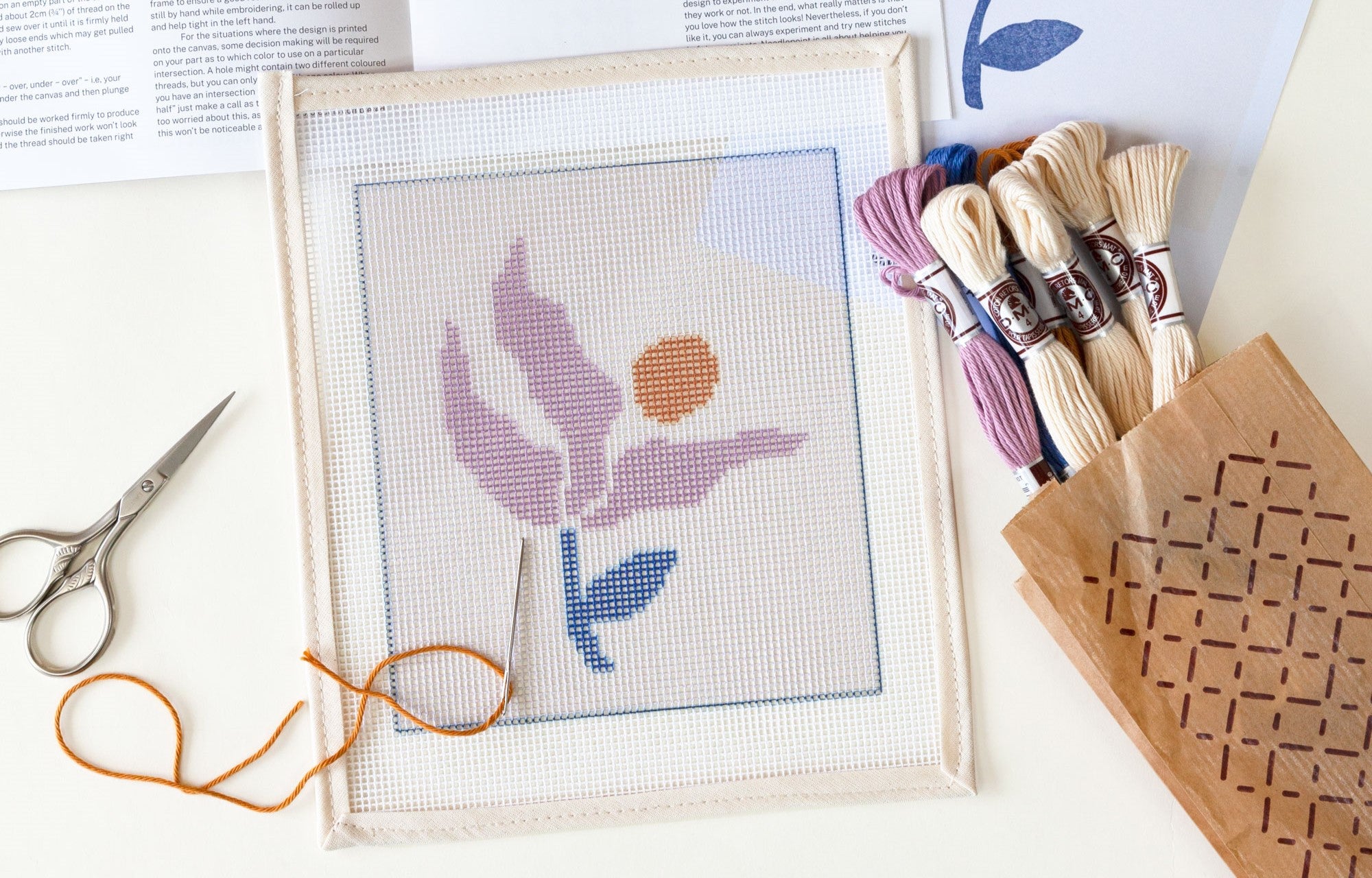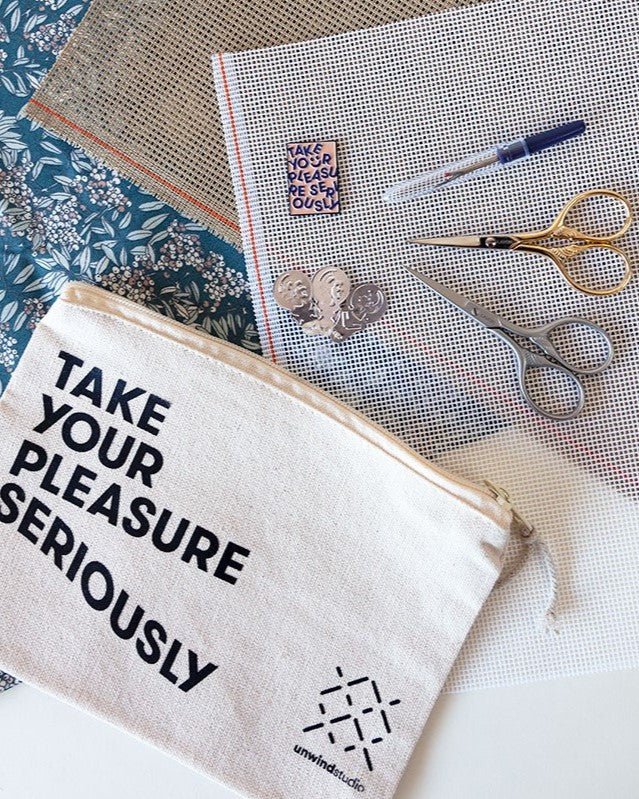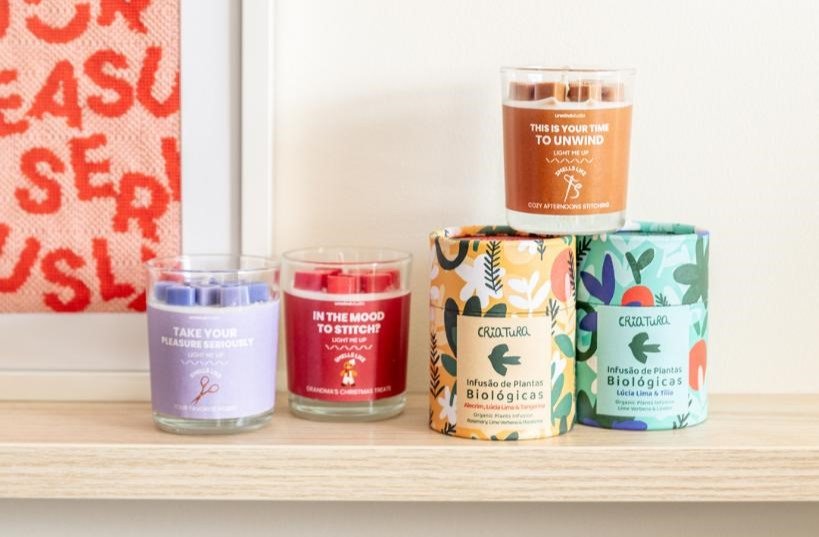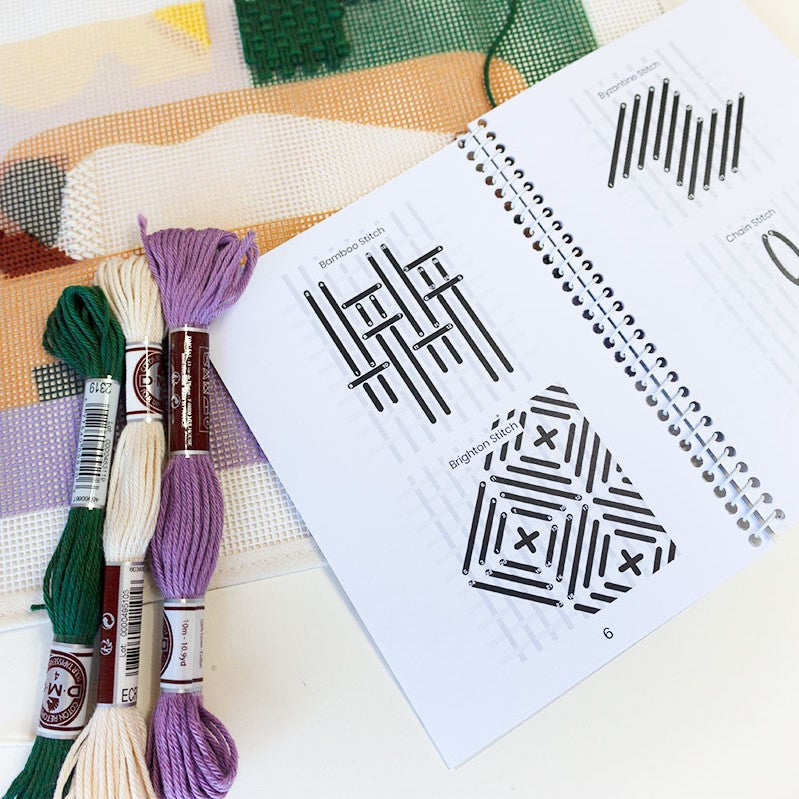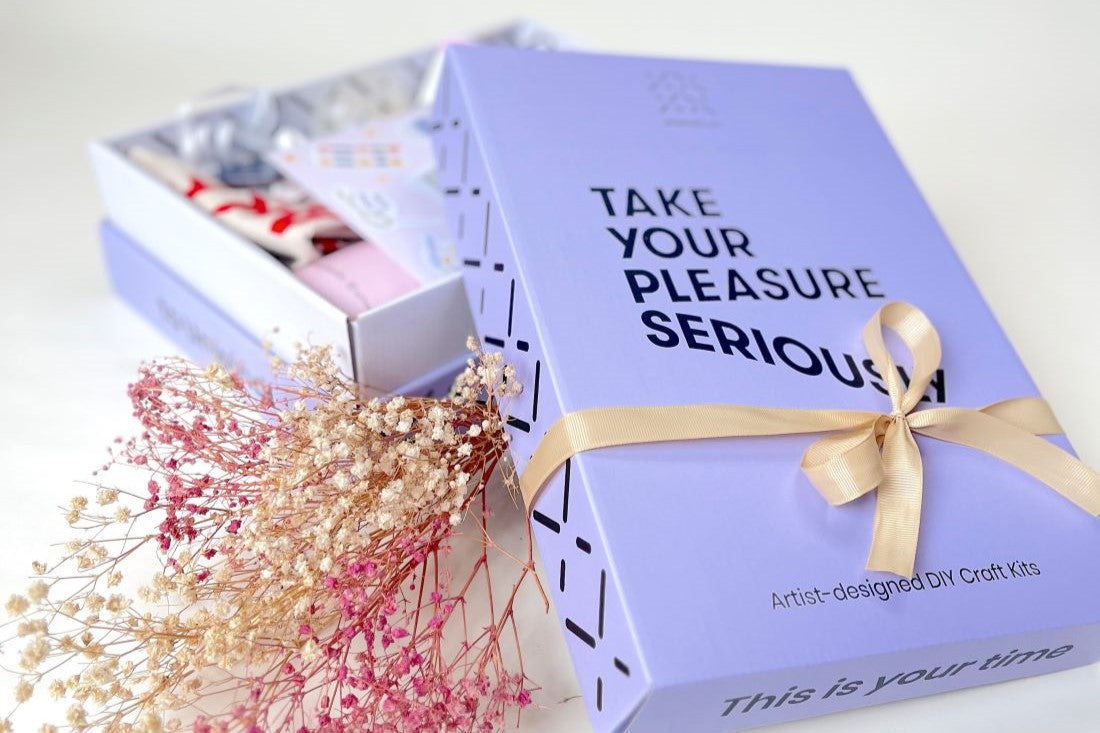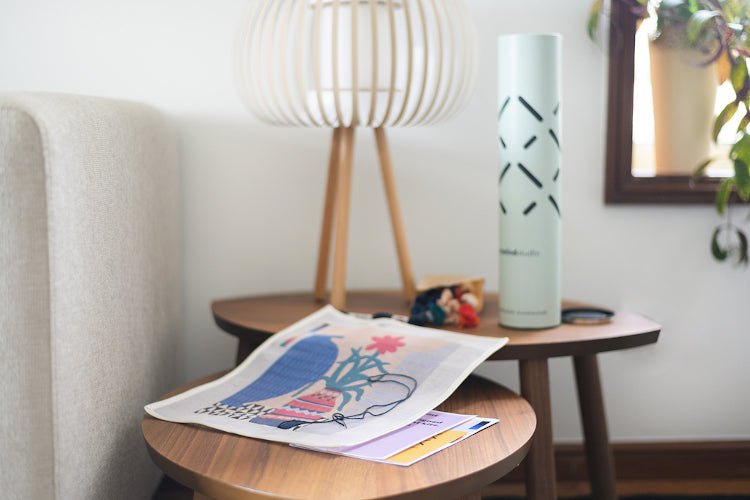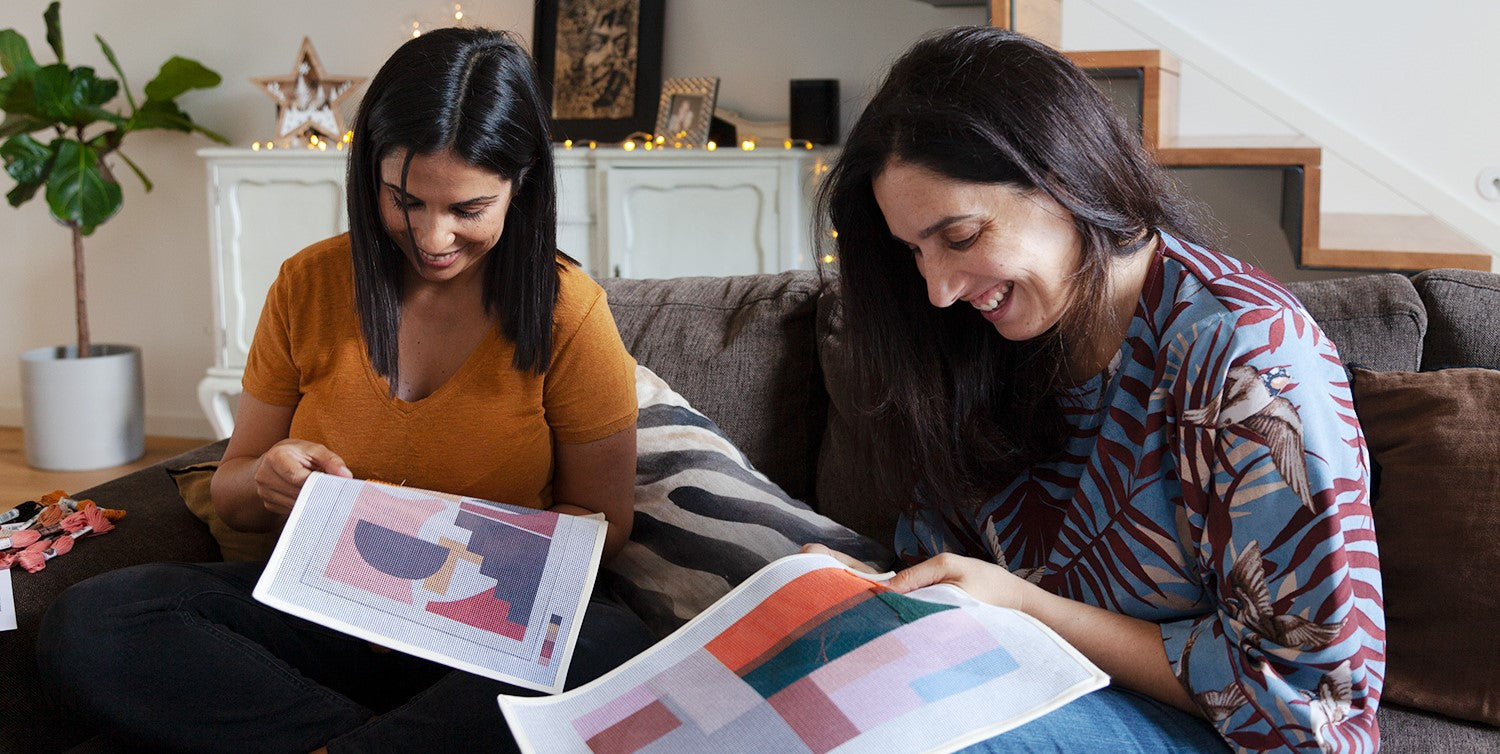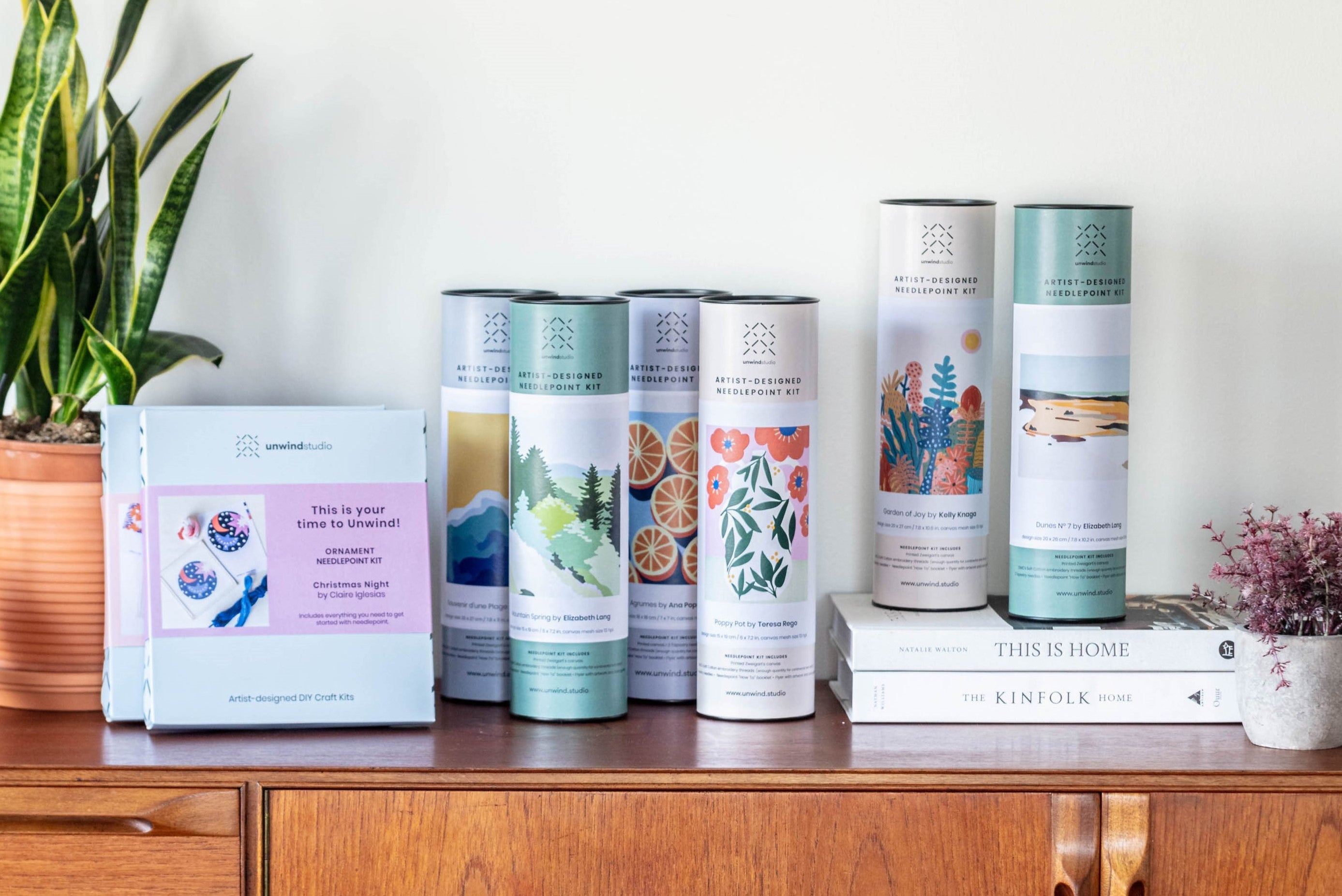Mental Health Awareness Month: 10 Mindfulness Tips to Unwind
May is the Mental Health Awareness Month - an important time to reflect on our own mental well-being and the ways we can improve it.
Mindfulness is a great tool to help reduce stress and anxiety and improve our overall mental health. Taking time to unwind in today's chaotic and fast-paced world is essential to maintaining our quality of life.
We are big advocates of putting one's self-care first and being kind to our bodies and minds - so here are our 10 mindfulness tips for when life gets a little too much:
1. Take a break from technology
In our increasingly digital world, it can be challenging to take a break from screens. However, getting away from technology can help us unwind and reduce stress levels.
Consider turning off your phone, computer, or TV for a few hours each day. During this time, you can focus on a new needlepoint project or other activities that relax you.
2. Practice mindfulness meditation
Mindfulness meditation is a great way to reduce stress and promote relaxation. Find a quiet space and focus on your breath. Pay attention to the sensations of your body and allow your thoughts to come and go without judgment.
You can do this for as little as five minutes a day or longer if you prefer.
3. Create a relaxing environment
Creating a relaxing environment can help promote mindfulness and reduce stress levels. You can add plants, candles, and other calming elements to your space.
This can be especially helpful while needlepointing, as it can help you fully immerse yourself in the activity and relax your mind.
4. Listen to calming music
Music can have a powerful impact on our mood and mental state. Listening to calming music can help reduce stress and promote relaxation.
Consider creating a playlist of relaxing music to listen to while you other activities like studying, reading, house chores, exercise, or needlepointing.
5. Practice gratitude
Practicing gratitude can help shift our focus from negative thoughts to positive ones. Take a few minutes each day to reflect on the things you're grateful for. You can write them down or simply think about them mindfully.
6. Take a walk
Getting outside and taking a walk can help clear your mind and reduce stress levels. Consider taking a walk and noticing the beautiful world around you, as well as the smells and noises along the way.
7. Set realistic expectations
Setting realistic expectations for yourself can help reduce stress and improve your mental health. Don't put too much pressure on yourself to complete your tasks or projects quickly. Instead, focus on the process and enjoy the journey, even if you're dreading doing something, try to give it a twist and make it more fun to do!
8. Progressive muscle relaxation
Tighten and relax each muscle group in your body, starting with your toes and working your way up to your head. This can help reduce tension and promote general body and mind relaxation.
9. Cook or bake something new
Spend time in the kitchen, focusing on the sights, smells, and tastes of the food you're preparing. This can be a great way to practice mindfulness and express your creativity, as well as a rewarding activity once you get to eat what you prepared.
10. Use needlepoint as a form of self-care
Needlepoint can be a great form of self-care. It allows you to focus on the present moment and express your creativity.
The methodical and repetitive nature of needlepointing keeps your mind focused while keeping your hands busy, which can easily get you in the zone, canceling the mental noise. You can learn here Why Crafts are good for Mental Health and Well-Being.
Not only this, but you'll end up with a beautiful art piece as a bonus, that you can be proud of finishing with your own hands :)
Every year, we're proud to celebrate World Mental Health Day, so you can check out our Mental Health Awareness Crafts Collab with Jenna O'Brien to get to know better our mental health inspired kits!


